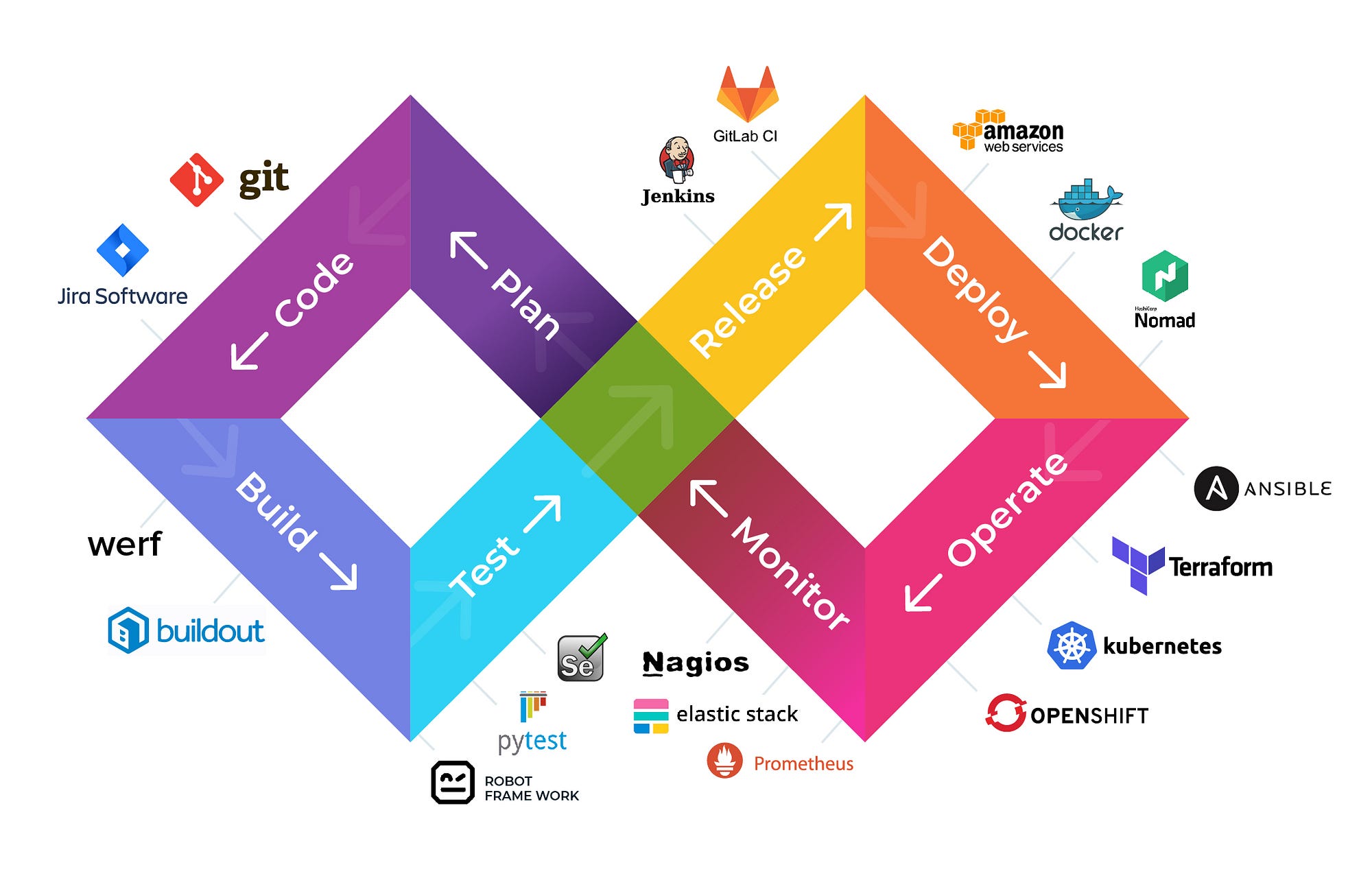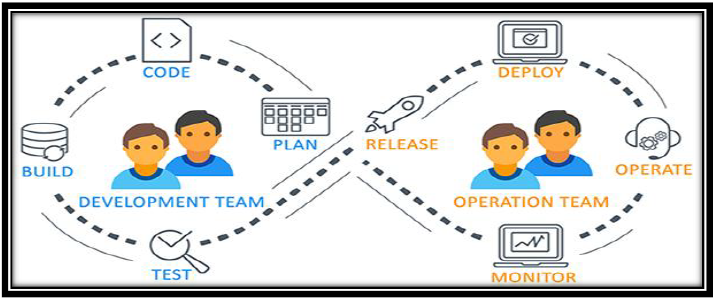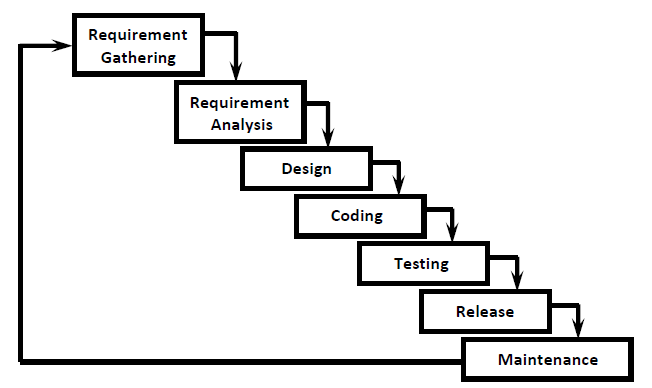100 Day Devops challenge:
 jeeva B
jeeva B
1.1) What is Devops?
1.2) Water Fall Model
1.3) Agile Model
1.4) Water fall vs Scrum
1.5) Devops vs Agile Models
1.6) Top Important points about DevOps
1.1) What is Devops?
Devops is not a new tool/Technology in the market.
It is a new culture or process to develop,release and maintain software products/projects/applications with high quality in very faster way.
We can achieve this in devops by using several automation tools.
For any software development, release and maintenance, there are two groups of engineers will work in the company.
Again, this classification can be divided into small sets of groups.
1) Development Group:
The people who are involving these below tasks
| people who are involving | Roles |
| planning | Business Analyst (BA) |
| coding | System Analyst (SA) |
| build | Design Architect (DA) |
| Testing | Developers/coders |
| Build Engineer | |
| Test Engineers/QA |
2) Non-Development Group or Operations Group or Administrators Group.
| people who are involving | Roles |
| Release | Release Engineers |
| Deploy | Configuration Engineer |
| Operate | System Admin |
| Monitor | Database Admin |
| Network Admin |
Devops is combination of development and operations. The main objective of Devops is to implement collaboration between development and operations teams.

SDLC -> Software Development Life Cycle
Waterfall Model
Prototype Model
Incremental/Iterative Model
Spiral Model
RAD Model
Big-Bang Model
Fish Model
V Model
Agile Model
Devops Culture
To understand this new Devops culture, we have to aware already existing SDLC Models.
1.2) Water Fall Model
• It is the oldest SDLC Model.
• It is also known as Linear sequential Model.
• In this model, each phase must be completed before the next phase can begin and there is no overlapping of phases.
i.e all phases will be performed one by one just like flowing of water fall downwards.

1.3 Agile Model:
This is the most frequently used and hot cake model for software development.
Agile Model is divided into several sub models.
• Rational Unify Process (RUP)
• Adaptive Software Development (ASD)
• Feature Driven Development (FDD)
• Crystal Clear
• Dynamic Software Development Method (DSDM)
• Extream Programming (XP)
• Scrum
Among all these models Scrum model is the most popular and frequently used model. Scrum is derived from Rugby Game.
•It is light weight process.
•It is an iterative /incremental model, and it accepts changes very easily.
•It is people-based model but not plan based model.
•Team Collaboration and Continuous feedback are strengths of this model.
1.4 Water fall vs Scrum:
In water fall model, before starting next phase, the previous phase should be completed. It is very rigid model and won't accept requirement changes in the middle.
But scrum model is not linear sequential model. It is iterative model. Total software will be developed increment by increment and each increment is called a sprint. Sprint is a deliverable/shippable product in scrum model.
Scrum is an agile model that allows us focus on delivering highest quality software in shortest time.
In this model software development follows increment by increment
Each increment will take one to 3 weeks duration.
7 to 9 members are responsible in every sprint. The art of doing the twice work in half time is nothing but scrum model by Juff sutherland
1.5 Devops vs Agile Models:
Devops and Agile, both are not same.
Similarities:
1) Both are software development methodologies. Agile is there in the market for the last 20 years, but devops is recent methodology.
2) Both models concentrating on rapid development of software project.
Differences:
1) The differences between these models will starts after development of the project.Agile methodology always talks about software development, testing and deployment.Once deployment completed agile methodology has no role.But Devops model will continue after deployment also and it is also responsible for operations and monitoring.
2) In Agile Model, separate people are responsible for developing, testing, and deploying the software. But, in DevOps, the DevOps engineer is responsible for everything, development to operations, and operations to development.
3) Agile model won't force us to use automation tools. But devops model is completely based on automation.
4) Agile model always giving highest priority for speed, whereas Devops giving priority for both speed and automation.
5) In Agile, client is responsible to give the feedback for the sprint. But in Devops, immediate feedback is available from the monitoring tools.
Top Important points about DevOps:
1) Devops is not a new Tool/Technology in the market.
2) It is a new culture or process to develop, release and maintain software products. 3) DevOps is combination of Development and Operations.
4) The main objective of devops is to implement collaboration between development and operations teams.
5) The beauty of DevOps is everything is automated, and we can use several automation tools for development and operations.
6) Devops Engineer is All Rounder. He should aware everything. Hence his role is considered as Devops Generalist.
7) Devops is not Agile model, and it is more than that because it covers both Development and operations, whereas Agile covers only Development but not operations.
8) Devops Cycle is an Infinite Loop where everything is continuous.
Subscribe to my newsletter
Read articles from jeeva B directly inside your inbox. Subscribe to the newsletter, and don't miss out.
Written by

jeeva B
jeeva B
👋 Hey there! I'm Jeeva, a passionate DevOps and Cloud Engineer with a knack for simplifying complex infrastructures and optimizing workflows. With a strong foundation in Python and PySpark, I thrive on designing scalable solutions that leverage the power of the cloud. 🛠️ In my journey as a DevOps professional, I've honed my skills in automating deployment pipelines, orchestrating containerized environments, and ensuring robust security measures. Whether it's architecting cloud-native applications or fine-tuning infrastructure performance, I'm committed to driving efficiency and reliability at every step. 💻 When I'm not tinkering with code or diving into cloud platforms, you'll likely find me exploring the latest trends in technology, sharing insights on DevOps best practices, or diving deep into data analysis with PySpark. 📝 Join me on this exhilarating ride through the realms of DevOps, Cloud Engineering where we'll unravel the complexities of modern IT landscapes and empower ourselves with the tools to build a more resilient digital future. Connect with me on LinkedIn: https://www.linkedin.com/in/jeevabalakrishnan